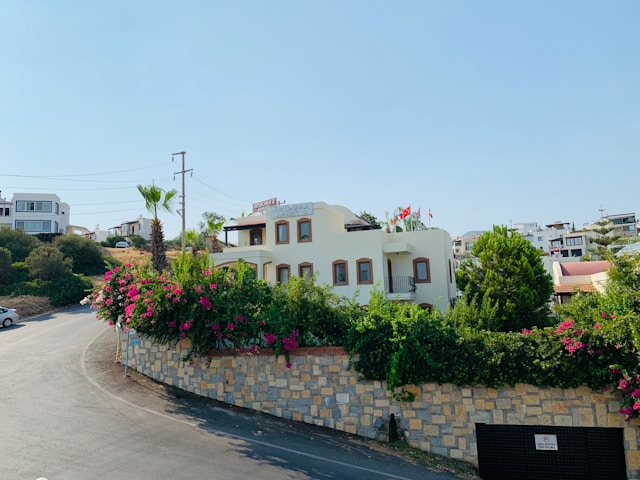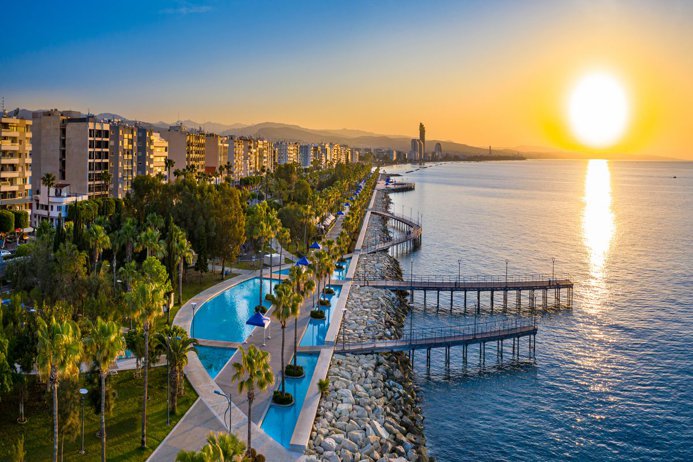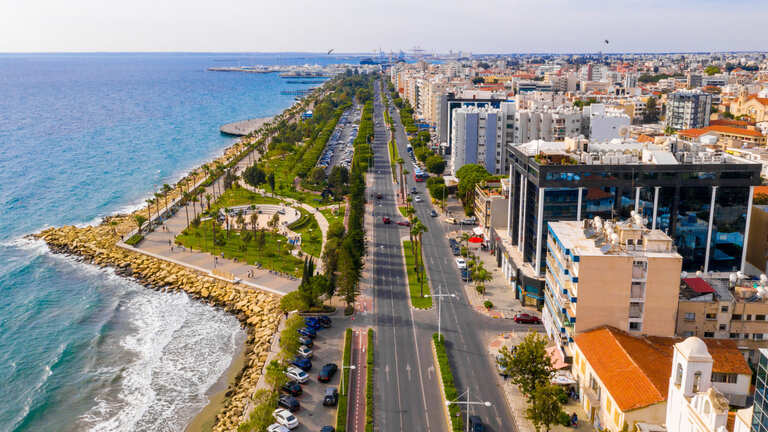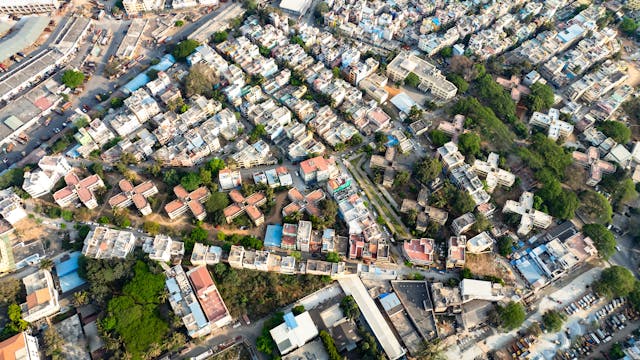
Egypt Property Investment 2026 | Market Outlook & Buyer Guide
Egypt is emerging as a dynamic property market with population-driven demand and government-led development. Buyers can combine lifestyle living with long-term investment potential.

Discover the best destinations, property tips, and lifestyle insights from around the world.
GET YOUR FREE MAGAZINE HERE!

The Cyprus cost of living is heavily influenced by housing. In Limassol, one-bedroom apartments can cost €900–€1,200, while Paphos and Larnaca offer cheaper options around €500–€800. Families may pay €1,600+ for larger apartments in major cities. Many expats explore housing in Cyprus or flexible rentals in Cyprus before moving. Long-term plans also require checking visa and residency in Cyprus requirements.

Housing is one of the biggest factors in the Cyprus cost of living, and prices vary greatly depending on city, region, and property type. Rent in Limassol is the highest, with one-bedroom apartments in the city centre often costing €900–€1,200 per month. By contrast, Paphos and Larnaca are much more affordable, where similar apartments can be found for €500–€800 per month.
Choosing between renting and buying is another major decision. Those planning long-term relocation often research housing in Cyprus to compare property options, while short-term residents may prefer rentals in Cyprus for flexibility.
Rent is not the only expense. Utilities, maintenance fees, and internet add to your monthly costs. Newer or fully furnished properties typically demand higher rents. Location also matters—homes near the beach, schools, or city centres cost more than those on the outskirts.
If you’re planning to move permanently, understanding the visa and residency in Cyprus process is just as important as budgeting for rent. Together, these factors will determine how much you need to live comfortably in Cyprus.

Food and drink are key parts of the Cyprus cost of living, and while prices are above the EU average, there are still plenty of affordable options. Eating out can be very budget-friendly, with fast-food meals costing €5–€7, a local beer around €2.50–€3, and a glass of wine starting from €2.20. Dining at mid-range restaurants usually costs €15–€20 per person, which is cheaper than in many Western European countries.
Grocery prices vary depending on whether you shop at supermarkets or local markets. Fresh fruits, vegetables, and fish at village markets are often cheaper than large chain stores. On average, monthly groceries for a single person can range from €200–€300, while a family may spend €500–€700 depending on eating habits. Imported goods and branded products tend to be more expensive, so choosing local produce helps keep costs down.
Cyprus has a strong café culture, so coffee is widely available at around€2–€3 per cup. Local wines and beers are affordable compared to imported brands, making it easy to enjoy social outings without overspending. Eating out often, however, will raise your overall budget, while cooking at home with local ingredients can significantly reduce expenses.
In short, food and drink in Cyprus offer a balance of affordability and variety. By mixing meals at home with the occasional restaurant outing, you can enjoy the Mediterranean lifestyle without breaking your budget.

Utilities are another important part of the Cyprus cost of living, and they can vary depending on the season and the size of your home. On average, basic utilities for a small apartment, including electricity, water, heating, and garbage collection, range between €120–€180 per month. Families in larger homes may pay €200–€250 or more, especially during the summer and winter when air conditioning or heating is used more often.
Cyprus does not have natural gas pipelines for households, so many homes use bottled gas cylinders for cooking and heating. A 10kg gas cylinder costs around €15–€21, and usage depends on your cooking and heating habits. Electricity bills are higher in the summer due to air conditioning and in the winter for heating.
The Internet in Cyprus is reliable but slightly more expensive than in some EU countries. A high-speed home internet package typically costs €35–€50 per month, depending on the provider and speed. Mobile phone plans with calls and data start at about €20–€30 per month, with prepaid options available for those on a budget.
To save money, many residents use energy-efficient appliances, limit air conditioning, and choose prepaid mobile or bundled internet packages. Utility costs are manageable, but they do add up, so it’s important to include them when calculating your monthly living expenses.
In short, utilities and internet make up a steady but predictable share of the Cyprus cost of living, with electricity and cooling being the most variable factors.

Transport is another cost to consider when looking at the Cyprus cost of living. While Cyprus is a small island, getting around often depends on whether you own a car or rely on public transport.
Petrol in Cyprus is relatively cheap compared to many EU countries. On average, prices range between €1.40–€1.60 per litre, though this can change with global fuel costs. For people who drive daily, fuel is one of the most consistent expenses, but it’s still more affordable than in places like Germany or France.
Public transport is limited but affordable. Buses are the main option, with single tickets costing about €1.50–€2.00 depending on the route. Monthly passes are available for frequent users, making it a budget-friendly choice for students and workers who don’t own a car.
Owning a car gives more freedom, but it comes with higher costs. In addition to fuel, you’ll need to budget for insurance, maintenance, and road tax, which can add €600–€1,000 per year depending on the vehicle. Cars are especially useful in smaller towns or areas with fewer bus routes.
Many expats and locals choose to drive, especially since some rural areas are not well connected by buses. However, for those living in bigger cities like Nicosia or Limassol, buses are a practical option for short daily commutes.
In summary, transport in Cyprus is affordable, with petrol prices lower than many EU countries and public transport costs that are easy to manage. The biggest decision is whether to rely on buses or invest in car ownership.

Healthcare is an important part of the Cyprus cost of living, and it is generally affordable compared to many Western countries. Cyprus has a public healthcare system known as GESY (General Healthcare System), which provides accessible and low-cost services to residents. For basic care, visits to a public doctor may cost just a few euros, while more complex treatments are also subsidized.
Public healthcare in Cyprus is widely available, with hospitals and clinics located across the island. Residents enrolled in GESY pay small contributions, usually deducted from salaries or pensions. For expats or new arrivals, learning how the system works is essential for budgeting and daily life. A good starting point is to review guides like healthcare in Cyprus, which explain coverage options and eligibility.
Private healthcare is also popular, especially among expats and those who want faster access to specialists. Private doctor visits typically cost €30–€60, while more advanced treatments are priced lower than in Western Europe or the US. Many people combine public and private care to balance affordability and speed.
Expats and retirees often choose private health insurance to cover gaps not included in GESY. Insurance costs depend on age, coverage, and provider but usually range between €400–€1,200 per year. For those planning long-term relocation, insurance is an important addition to monthly living costs.
In short, healthcare and insurance in Cyprus are affordable and reliable. By understanding the public system and considering private insurance, residents can access high-quality care while keeping expenses manageable.

Lifestyle choices also shape the Cyprus cost of living. The island offers a relaxed Mediterranean way of life, with plenty of cafés, restaurants, and leisure activities that range from affordable to high-end. How much you spend depends on whether you prefer simple outings or a more luxurious lifestyle.
Cyprus has a strong café and dining culture. A coffee typically costs €2–€3, while a meal at a mid-range restaurant may be €15–€20 per person. For those curious about the social side of local life, exploring tradition in Cyprus provides insight into how culture and lifestyle influence daily expenses.
Gym memberships average around €40–€60 per month, while fitness classes, yoga, or martial arts can cost a bit more. Outdoor activities like hiking, swimming, and cycling are free, making them popular for those who want to stay active without spending much.
Movie tickets are about €8–€10, and nightlife varies depending on the city. Limassol and Ayia Napa offer more high-end clubs and bars, while smaller towns have affordable taverns and pubs. For a lighter look at everyday life, check out fun facts about Cyprus, which highlight the playful side of living on the island.
Cyprus hosts local festivals, concerts, and traditional celebrations throughout the year. Many of these are free or low-cost, offering entertainment that connects residents with the island’s heritage and community.
In short, lifestyle and entertainment costs in Cyprus are flexible. Whether you enjoy simple café visits or a busy nightlife, there are options for every budget.

The Cyprus cost of living can change a lot depending on where you live. Each city and region offers a different balance of housing, food, and lifestyle costs, so choosing the right location makes a big difference to your monthly budget.
Limassol is the priciest city in Cyprus. A one-bedroom apartment in the city centre can reach €900–€1,200+ per month, and lifestyle costs such as dining and nightlife are also higher. It’s a popular choice for professionals and business owners, but it comes with a premium price.
Nicosia offers a mid-range lifestyle. Housing is generally cheaper than in Limassol, and daily expenses like dining and entertainment are more affordable. Being the capital, it also has strong job opportunities and government services.
Paphos is often seen as the most budget-friendly city, especially for families and retirees. Housing is more affordable, and the pace of life is slower and more relaxed. Many expats consider Paphos when researching retirement in Cyprus because of its affordability and good quality of life.
The Turkish-controlled North Cyprus is usually 20–30% cheaper t than the Republic of Cyprus. Housing, groceries, and dining all cost less. However, the region operates under different rules, so expats often prefer the Republic for smoother relocation and EU membership benefits.
For anyone comparing cities, it helps to look beyond prices. Lifestyle, traditions, and culture also influence where people choose to settle. Many expats also research the tradition in Cyprus to understand how cultural differences might affect daily living.
In short, regional differences strongly affect the Cyprus cost of living. Limassol is vibrant but expensive, Paphos is calm and affordable, Nicosia offers balance, and the North is the cheapest but less connected to the EU.
While the Cyprus cost of living is reasonable compared to many Western European countries, smart choices can help stretch your budget even further. Whether you’re a student, professional, or retiree, these strategies make everyday life more affordable.
Fresh produce, fish, and bread are usually cheaper at local village markets than in large supermarkets. This not only lowers costs but also gives you access to seasonal Mediterranean ingredients.
Eating out is enjoyable, but it quickly adds up. Preparing meals at home with local ingredients can cut your food expenses by half. Families, in particular, benefit from self-catering as a way to control monthly budgets.
Living in Paphos or smaller towns is often cheaper than Limassol or Nicosia. Housing and lifestyle costs vary widely, so picking a more affordable region is one of the easiest ways to save. For long-term plans, understanding visa and residency in Cyprus is just as important as choosing the right city.
While most expats prefer driving, buses are affordable and reliable for short commutes. Monthly passes are available at low cost, making them a good alternative if you live in well-connected areas.
Cyprus offers beautiful beaches, hiking trails, and cultural festivals that cost little or nothing. This makes it easy to enjoy the lifestyle without spending much on entertainment.
In short, saving money in Cyprus is all about lifestyle choices. From shopping smart to exploring free activities, it’s possible to enjoy the island fully while keeping costs manageable.
The Cyprus cost of living is affordable compared to many Western European countries, though prices vary by city, lifestyle, and housing choices. Limassol is the most expensive, Paphos the most budget-friendly, and Nicosia offers a middle ground. Costs like food, transport, healthcare, and utilities are manageable, especially if you make smart choices.
For expats and retirees, Cyprus combines a Mediterranean lifestyle with fair expenses, making it an attractive place to live. By planning ahead, choosing the right location, and understanding key factors like housing and visa and residency in Cyprus, you can enjoy a comfortable life while keeping costs under control.
In short, Cyprus offers a high quality of life at a reasonable price, making it a strong choice for anyone seeking a balance of affordability and lifestyle in Europe.
An individual spends about €1,800–€2,000 with rent, while a family of four needs around €2,600 without rent in major cities.
Yes, Cyprus is cheaper than Western and Northern Europe, but a bit more expensive than Eastern Europe or North Africa.
Paphos is considered the most affordable major city, with lower housing and food costs compared to Limassol and Nicosia.
Yes, Limassol is the most expensive city in Cyprus. Rents and lifestyle costs are higher due to its popularity with expats and businesses.
A one-bedroom apartment in Limassol can cost €900–€1,200, while in Paphos or Larnaca you may find options for €500–€800.
Grocery prices are slightly above the EU average. Monthly costs range from €200–€300 for individuals and €500–€700 for families.
Buses are the main option. A single ticket costs €1.50–€2.00, and monthly passes are affordable for regular users.
Yes, Cyprus has a public healthcare system (GESY) with low costs. Private healthcare is also cheaper than in many Western countries.
Yes, North Cyprus is about 20–30% cheaper for housing and food, but many expats prefer South Cyprus for its EU membership and infrastructure.
Yes, by shopping at local markets, cooking at home, using public transport, and choosing affordable cities like Paphos, you can keep costs low.
About International Property Alerts
International Property Alerts is a premier global platform connecting real estate investors with handpicked opportunities in emerging and lifestyle-driven markets. Through curated listings, expert guidance, and market insights, we help buyers make confident property decisions worldwide.
Media Contact:

Phone: +44 7961 212181

Egypt is emerging as a dynamic property market with population-driven demand and government-led development. Buyers can combine lifestyle living with long-term investment potential.

Phuket remains Thailand’s premier lifestyle property market, attracting long-stay and international buyers in 2026. Demand is driven by resort living, usability, and flexible rental options.

Discover the cheapest cities in France for living and travel. Compare rent and lifestyle costs, and get simple tips for students, expats, and people planning
Compare listings
ComparePlease enter your username or email address. You will receive a link to create a new password via email.